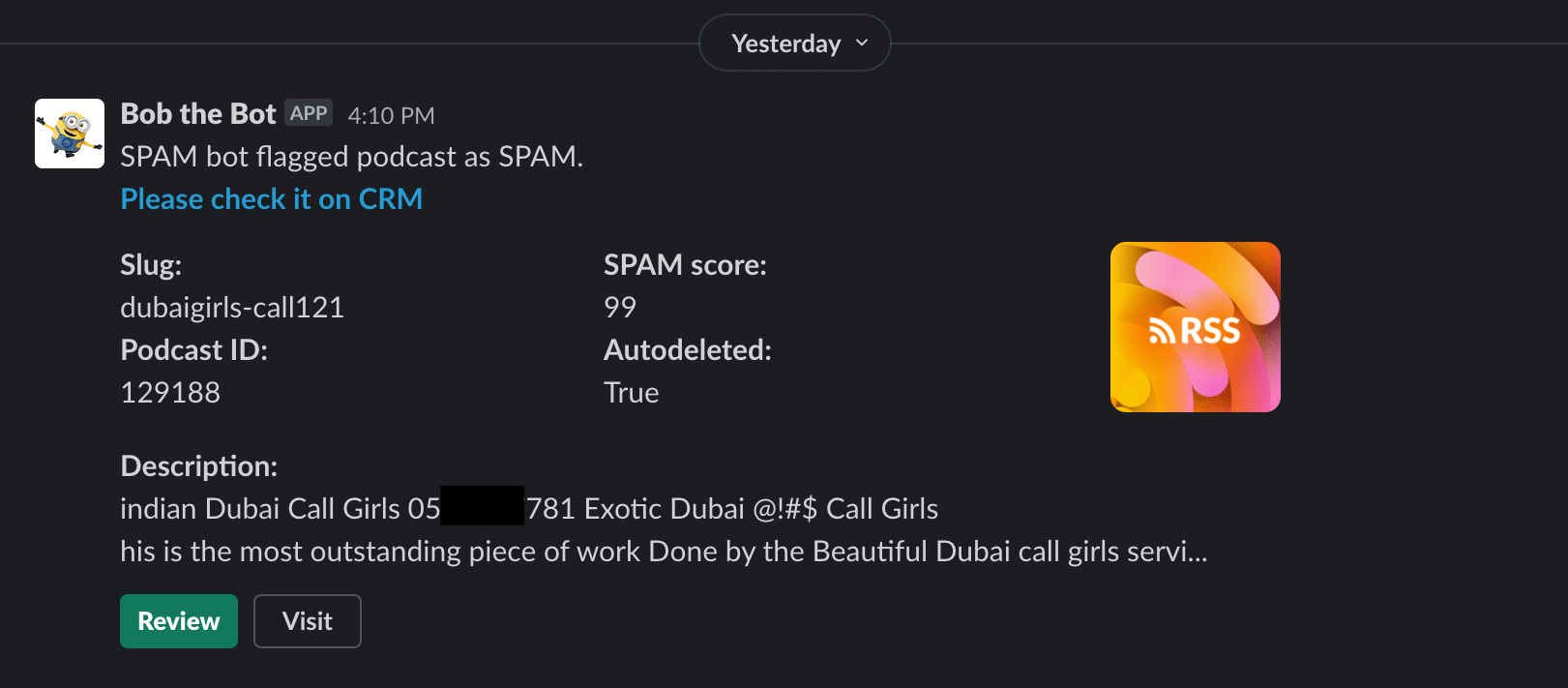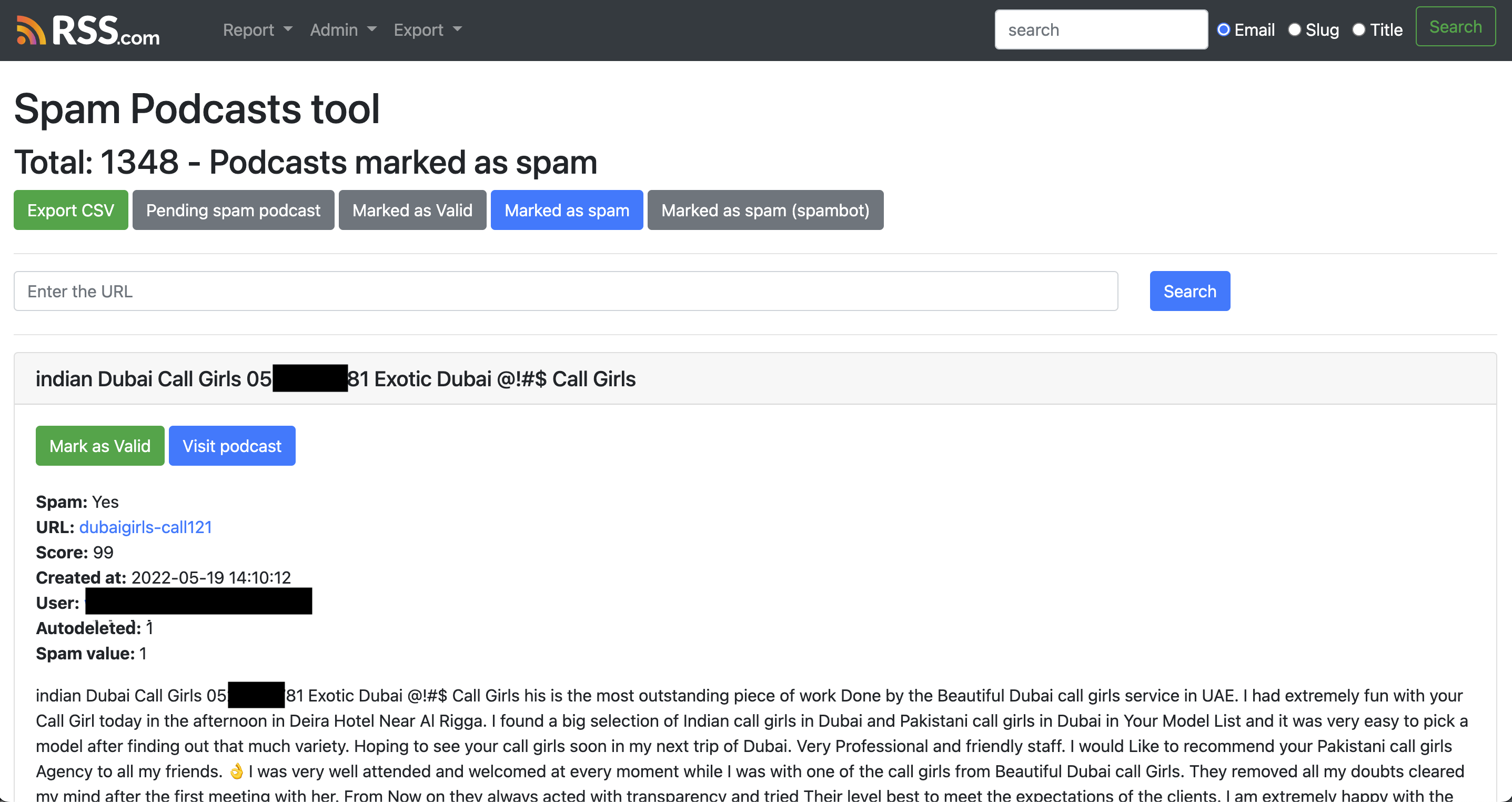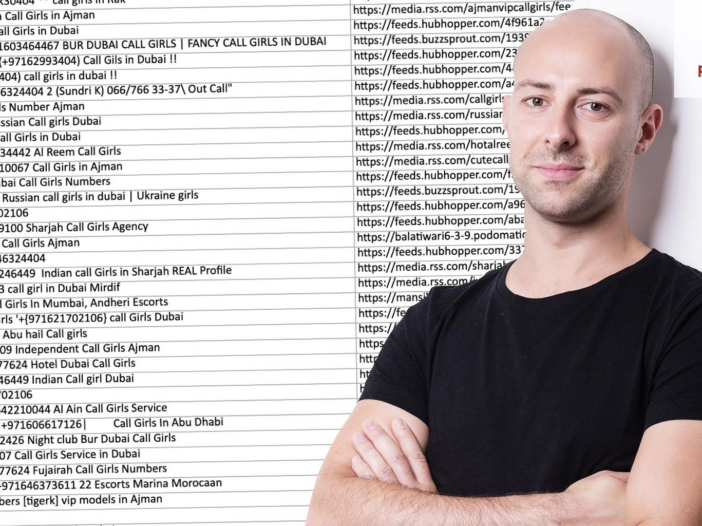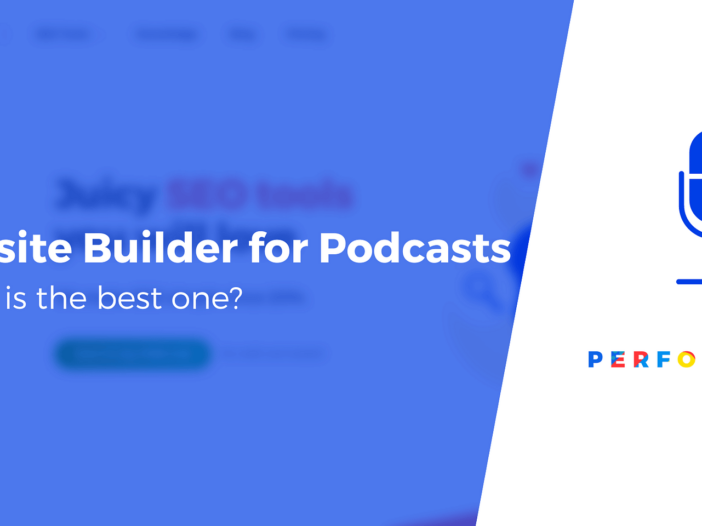Join us in analyzing 3 case studies that show the importance of driving brand search behavior and engagement, and how to do it in months, instead of years.
Maximize your SEO efforts in 2024 with insights on Google’s SGE, algorithm updates, and expert tips to keep your site ahead.
Download this guide and learn how to optimize and manage Google Performance Max campaigns, with expert insights and actionable strategies to ensure your campaigns are effective.
Join us in analyzing 3 case studies that show the importance of driving brand search behavior and engagement, and how to do it in months, instead of years.
Join us in analyzing 3 case studies that show the importance of driving brand search behavior and engagement, and how to do it in months, instead of years.
Join us as we dive into exclusive survey data from industry-leading SEOs, digital marketers, content marketers, and more to highlight the top priorities and challenges that will shape the future of search in 2025.
Google’s Search Relations team plans to update their SEO Starter Guide, focusing on debunking myths and modernizing advice.
In a recent episode of “Search Off the Record,” Google’s Search Relations team provided information about upcoming changes to Google’s SEO Starter Guide.
The team, composed of John Mueller, Lizzie Harvey, and Gary Illyes, says the guide maintains a 91% user satisfaction rating. However, they believe it’s due for an overhaul to streamline outdated advice and better serve its core beginner audience.
These are some of the most notable changes discussed during the podcast.
The team discussed the role of HTML structure in search engine rankings. They explained that proper use of HTML elements such as titles can be helpful for rankings but doesn’t impact them as much as some think.
“Using headings and a good title element and having paragraphs, yeah, sure. It’s all great. But other than that, it’s pretty futile to think about how the page… or how the HTML is structured,” Ilyes mentioned, debunking common misconceptions within the SEO community.
The team discussed the ongoing debate about whether domain names affect SEO.
They recommended prioritizing branding over including keywords when choosing a domain name. Their view was that establishing a memorable brand should take precedence over trying to optimize domain names for search engines.
This advice reflects a trend toward brand-centric domain name selection in SEO strategies.
The team deliberated whether to discuss meta tags like meta keywords in the revised SEO Starter Guide. The team leaned towards excluding this topic to avoid unnecessarily worrying site owners because meta keywords have minimal influence on Google Search rankings.
“I feel very conflicted about documenting anti patterns because we perhaps also give ideas about like new worries for site owners to think about,” Gary explained, highlighting their cautious approach.
Ultimately, the decision was made to focus the guide on optimizing factors with a more significant impact.
Related: The Complete Guide to On-Page SEO
The conversation explored ways for the team to correct common SEO misconceptions, specifically the idea that utilizing Google products improves search rankings.
The team agreed that the SEO Starter Guide should address these inaccurate beliefs to prevent the spread of misinformation.
As the Google Search Relations team prepares to release the updated SEO Starter Guide, this recent podcast episode has given the SEO community a sneak peek at the upcoming changes.
They want to simplify and modernize the guide and debunk common SEO myths.
The goal is to provide helpful, practical SEO advice for people who are just starting and experienced professionals.
For more on the updates to Google’s SEO Starter Guide, see:
Featured Image: Sadi-Santos/Shutterstock
Matt G. Southern, Senior News Writer, has been with Search Engine Journal since 2013. With a bachelor’s degree in communications, …
Conquer your day with daily search marketing news.
Join Our Newsletter.
Get your daily dose of search know-how.
In a world ruled by algorithms, SEJ brings timely, relevant information for SEOs, marketers, and entrepreneurs to optimize and grow their businesses — and careers.
Copyright © 2024 Search Engine Journal. All rights reserved. Published by Alpha Brand Media.
Google Podcasts Manager shows you search impressions and clicks from Google Search – Search Engine Land
sel logo
Search Engine Land » Platforms » Google » Google Assistant »
Chat with SearchBot
SearchBot:
Google announced a new feature for Podcasters named Google Podcast Manager. Podcast Manager allows podcasters to see how well their podcasts are performing in Google Search.
What Podcast Manager does. Google Podcast Manager enables “podcasters can see impressions and clicks for Google Podcasts results that appear in Search, as well as top discovered episodes and search terms that led to their podcast,” the company said.
Related: Google adds playable podcasts directly in the search results
It looks like this is a version of the search performance report in Google Search Console for podcasts.
Here is what Google says this provides:
What it looks like. I added my weekly video podcast to the Google Podcast Manager. It currently does not have any data but this is what I see right now:
How to Optimize Podcasts for Google. Google posted these details on how to optimize for Podcasts on Google. You can learn more about this over here.
Where to sign up. You can sign up for Google Podcast Manager at https://podcastsmanager.google.com/about
Why we care. Podcasts are super popular now and show up often in Google Search. If you are running a podcast, you will probably want to uncover how it performs directly in Google Search and this tool does that for you.
Related stories
New on Search Engine Land
About the author
Related topics
Get the newsletter search marketers rely on.
See terms.
Learn actionable search marketing tactics that can help you drive more traffic, leads, and revenue.
Online Nov. 13-14: SMX Next
Available on-demand: SMX Advanced
Available on-demand: SMX Master Classes
Discover time-saving technologies and actionable tactics that can help you overcome crucial marketing challenges.
April 15-17, 2020: San Jose
Get More Out of Your Webinars: Strategies for 24/7 Engagement
How Content is Critical to a Winning Ecommerce Strategy
ABM and AI for Marketers: Priority Use Cases for 2025
Enterprise SEO Platforms: A Marketer’s Guide
Email Marketing Platforms: A Marketer’s Guide
Customer Data Platforms: A Marketer’s Guide
The Modern Marketing Data Stack for 2025
Meet your new AI-powered marketing assistant!
Get the newsletter search marketers rely on.
Topics
Our events
About
Follow us
© 2024 Search Engine Land is a Trademark of Semrush Inc.
Third Door Media, Inc. is a publisher and marketing solutions provider incorporated in Delaware, USA, with an address 88 Schoolhouse Road, P.O. Box 3103, Edgartown, MA 02539. Third Door Media operates business-to-business media properties and produces events, including SMX. It is the publisher of Search Engine Land, the leading digital publication covering the latest search engine optimization (SEO) and pay-per-click (PPC) marketing news, trends and advice.
Fighting podcast spam with RSS.com – Podnews
This article is at least a year old
Almost every podcast host offers a free plan – whether it’s a permanent, free account, or a starter month free.
With those free plans come a bunch of new shows. Some people try out podcasting for the first time: but some people take advantage of free plans to promote the oldest profession on the planet: the sex trade.
Disappointingly, sex workers aren’t suddenly producing deftly-produced audio fiction shows, true crime series, or branded content; instead, it’s as simple as using podcasting to chase SEO and better rankings in Google. (We’ve changed the telephone numbers in the above image!)
Alberto Betella from RSS.com takes up the story for Podnews:
We offer a freemium model; users can sign up and upload their first episode without a credit card. But we started to notice an increasing number of podcasts that were created only with the goal of promoting dubious and illegal services.
These podcasts were not created by bots, whose patterns are easier to automatically identify, but by real users: mainly located in India and Pakistan in our case, who manually created hundreds of shows and uploaded hundreds of fake episodes containing random noise, or random music extracts.
This behavior is harder to identify with simple rules based on IP and user agents; and we quickly realized that the goal of these spammers was twofold:
The first was simple to solve. For all the shows that only have one short episode and don’t have an active subscription to our service (i.e. those shows that are not “verified” or don’t pass our quality filters), we added the rel="ugc" attribute, and similar, to the webpage meta tags and to all the hyperlinks, following Google’s advice. This is the best deterrent for any spammer. If the webpage they create on our platform is not indexed by Google and their links are not contributing to increase any ranking, there is no point in creating these web pages.
The issue around submissions to other directories was more complex instead since spammers were submitting their spam shows, either manually or via our API integrations, to major podcast directories. If a spam podcast passes the filters of a podcast directory, then they can potentially earn visibility in search results.
On a couple of occasions, a major directory reached out to us telling us that dozens of spam podcasts we hosted were submitted to them in the short time span of a few hours. We had two options:
a. “Throw humans at the problem”, hire 1 or 2 extra people to counteract this misbehavior (perhaps also implementing a moderation queue for newly created podcasts)
b. build tech to address and mitigate the problem
We chose option B because it works at scale, it doesn’t need food and drinks, and because it’s a lot more fun! A few people in our team, in fact, have a strong AI/ML background and it doesn’t happen very often to have the opportunity to leverage this skill set in the podcasting space.
We learnt that spammers in podcasting do not rely on the episode’s audio files to be actually listened to, but they rather aim at discoverability through the appearance of titles and descriptions in search results of search engines and podcast directories.
For this reason, we focused our spam detection mainly on text and we used state-of-the-art Natural Language Processing (NLP) techniques.
First, we manually flagged the spam podcasts in our database and then we used this corpus to train our ML model, normalize the lexicon and extract relevant features such as TF-IDF, among others. Once the ML model was ready, we built an ad hoc API (aka “SpamBot”) that ingested all the new shows and all the changes in existing shows (e.g. new episodes, edited episodes), channelled them through our ML model and returned in real-time a SPAM score.
Based on this spam score our bot can:
In the case a human review is recommended, the team can take action directly via Slack by flagging it directly as spam with the spam button.
In addition, our team can review spam podcasts and also flag false positives (if any) via our CRM, another internal tool that we built in house to control all the aspects of our product:
Flagging false positives via our CRM was very important at the beginning of this project to improve the accuracy of our solution.
While the accuracy of the very first spam model was not bad, over the first couple of months thanks to this semi-supervised learning approach, we were able to improve and re-train our ML model and achieve admirable results. Our model today is capable of detecting spam podcasts in a few milliseconds with high precision (99.32%, F1=.98, p < .05) as demonstrated in our confusion matrix analysis:
Effectively, our current model reduced the need for human intervention to almost zero, with very pleasing consequences for the safety of our community.
To make the model stronger, we added other parameters, including the presence of a custom cover art vs our default cover art.
Our approach is solid enough even in the case that spammers will start to use the audio files to promote spam products because audio can be transcribed into text and then fed into the same ML models we use for the description.
This is one of the reasons why in the next couple of months we’ll launch free transcripts for all RSS.com users: important for accessibility but also great for spam detection!
Fun fact: one caveat of this approach is that, because NLP models are trained using a given corpus, the languages less present in these corpora may result in false positives. This happened to us with French. Because we do not host many shows in French, it so happened that shows in French we hosted were flagged as spam (false positives) with significantly higher frequency than other languages such as English or Spanish. What we did to solve this challenge was compile a simple dataset with the top ~60 podcasts in France (title and description) and feed it as a training corpus to our ML model… et voilà! Our spambot learned French and false positives in that language were drastically reduced.
We cannot share our current ML model as open source because it is part of the unique value proposition of our company. However, we have described the methods and provided actionable recommendations for anyone that wants to build something similar. Hopefully, this is our small contribution to keep podcasting spam free!
You can get started for free with RSS.com without a credit card; but not you, suspiciously pretty-looking Russian blonde in Dubai who just wants to spend some quality private time with a new friend.





















































































Readers and supporters
Google On 404 Errors And Ranking Drops – Search Engine Journal
Join us in analyzing 3 case studies that show the importance of driving brand search behavior and engagement, and how to do it in months, instead of years.
Maximize your SEO efforts in 2024 with insights on Google’s SGE, algorithm updates, and expert tips to keep your site ahead.
Download this guide and learn how to optimize and manage Google Performance Max campaigns, with expert insights and actionable strategies to ensure your campaigns are effective.
Join us in analyzing 3 case studies that show the importance of driving brand search behavior and engagement, and how to do it in months, instead of years.
Join us in analyzing 3 case studies that show the importance of driving brand search behavior and engagement, and how to do it in months, instead of years.
Join us as we dive into exclusive survey data from industry-leading SEOs, digital marketers, content marketers, and more to highlight the top priorities and challenges that will shape the future of search in 2025.
Google’s Gary Illyes answered a question about a ranking drop that appeared to be connected to 404 page not found errors
In a Google Office Hours podcast, Google’s Gary Illyes answered a question about 404 Page Not Found errors that coincided with a drop in rankings.
There are probably many reasons for 404 errors created by bots. One reason for those error responses could be that they are originating from automated scanners that are looking for files or folders that are typical for specific vulnerable plugins or themes.
Checking the the IP address and user agent of the bot that’s causing the 404 server error responses can also yield clues if those 404 responses are from automated scanning bots. If the IP address indicates it’s originating from a web host, or a Russian or Chinese IP address then it’s probably a hacker. If the user agent is an out of date version of Chrome or Firefox then that’s probably a hacker’s bot, too. That’s just one reason out of many.
The person asking the question correlated a drop in rankings with 404 Page Not Found server responses.
This is the question that was asked:
“False 404 URLs hitting my website from external source, could this be related to ranking drop? What can I do to fix it?”
Google’s Gary Illyes responded:
“Fake 404s that Googlebot might’ve crawled cannot be reasonably attributed to a ranking drop. It’s normal to have any number of 404s on a site and you don’t have to fix them, though if you see in your analytics software that a larger number of actual users are also coming through those 404 URLs, I would personally try to convert them somehow by, for example, showing them some relevant content instead.”
Gary said that 404s are normal and unlikely to cause a drop in search rankings. It’s true that 404 errors are a common occurrence. In general that’s okay and most of the time there’s no need to fix anything.
See also: The Best 404 Pages: 40 Examples You Need To See
There are other cases where 404s are created by real people who are following a link from somewhere and getting a Page Not Found response. This is easy to diagnose by checking if the URL the site visitors are trying to reach closely resembles an actual URL. That’s an indication that someone misspelled a URL and the way to fix that is by creating a redirect from the misspelled URL to the correct one.
See also: 404 vs. Soft 404 Errors: What’s The Difference & How To Fix Both
Something that Gary didn’t mention but is worth mentioning is that there may be a small possibility that a bot did find a vulnerability and the 404s were caused by a scanner that was scanning for vulnerabilities before eventually finding one.
One way to check for that is to use phpMyAdmin, a server app, to view your database tables in the section for users and see if there’s an unrecognized user.
Another way, if the site is hosted on WordPress, is to use a security plugin to scan the site to see if it’s using a vulnerable theme or plugin.
Jetpack Protect is a free vulnerability scanner that’s created by the developers at Automattic. It won’t fix a vulnerability but it will warn a user if it finds plugin or theme related vulnerabilities. The paid premium version offers more protection.
Other trustworthy WordPress security plugins are Sucuri and Wordfence, both of which do different things and are available in free and premium versions.
But if that’s not the case then the ranking drops are pure coincidence and the real reasons lie elswhere.
Listen to the question and answer at 12:27 minute mark of the Office Hours podcast:
Featured Image by Shutterstock/Asier Romero
I have 25 years hands-on experience in SEO, evolving along with the search engines by keeping up with the latest …
Conquer your day with daily search marketing news.
Join Our Newsletter.
Get your daily dose of search know-how.
In a world ruled by algorithms, SEJ brings timely, relevant information for SEOs, marketers, and entrepreneurs to optimize and grow their businesses — and careers.
Copyright © 2024 Search Engine Journal. All rights reserved. Published by Alpha Brand Media.
Halda’s AI SEO Tool Empowers Higher Education Marketers with Content Optimization for AI Search – EdTech Innovation Hub
The new feature aims to help institutions address content gaps, improve the accuracy of AI-generated summaries of their content, and ensure that prospective students receive relevant, accurate information about programs and services.
AI SEO is tailored for the evolving landscape of search engine optimization, which now involves adapting content for modern AI tools like ChatGPT and Claude. These platforms summarize institutional information directly for prospective students, raising the question of how accurately they represent each school’s offerings and mission. Halda’s tool enables marketers to understand how AI interprets their website content and make adjustments to better serve students’ needs.
AI SEO allows enrollment marketers to directly manage how their content appears in AI search summaries, providing data-driven insights and helping to address missing or outdated information without IT support. With this tool, marketing teams can strategically plan content to better match student interests and improve engagement.
Halda’s AI SEO tool is part of a broader platform designed to streamline enrollment marketing, allowing institutions to monitor digital engagement effectively and focus on content that resonates with prospective students.
“In an AI-driven world, Halda AI SEO is redefining what SEO means for higher education,” said Jon Grover, VP of Product at Halda. “With traditional approaches becoming insufficient, institutions must ensure their content is crafted intentionally for AI summarization. Without a proactive strategy that is made easier with AI SEO, schools risk losing prospective students who find answers in search engines without ever visiting the institution’s website.”
© Paxton Media Ltd 2024. All rights reserved. No part of this website, including text, graphics, logos, images, and software, may be reproduced, distributed, or transmitted in any form or by any means without the prior written permission of Paxton Media Ltd.
4 Best Website Builders for Podcasts Compared for 2022 – Themeisle
Having a website for your podcast makes it look more professional and ensures easier contact with the media, potential interviewees, and likely sponsors. But what is the best website builder for podcasts? What features does it offer? How much does it cost?
👉 You’ll find all the answers you need in this guide, including:
By the time you’re finished reading, you’ll know where you want to build your podcast website.
There are many factors to consider when choosing a podcast website builder. First, there are the features you should look for in any website builder:
There are also a couple of podcast-specific features to look for:
⚠ Note that all of the website builders on this list offer at least one of these key podcast-specific features.
Squarespace is a fully-featured website builder that makes it possible to create any kind of website you can imagine. Higher-tier plans include ecommerce features, and you can get extensions for everything from email marketing to running paid membership programs.
For most users, the only drawback of Squarespace is that it isn’t specifically designed for podcasts. This means that you’ll have to publish your podcast as a blog and submit it to podcast players manually. You also won’t find any podcast-specific themes, though Squarespace has many excellent themes for blogs and entertainment media.
All in all, Squarespace is a highly versatile website builder that offers both podcast hosting and the ability to use your website to create a variety of income streams.
Squarespace hosting starts at $16.00 per month when purchased on an annual basis. Ecommerce features become available at $23.00 per month.
Squarespace is ideal for people who want the option to build a robust business around their podcast.
PodBean is both the best website builder for podcasts and a podcast hosting company. With PodBean it’s easy to upload podcast episodes, submit your podcast for distribution with all major networks, and create a high-quality site for your podcast, so people can find it. There are also half a dozen podcast-specific site themes available, and the visual site builder offers extensive customization options.
Another great thing about PodBean is that its free plan is quite generous, with full access to the site builder and the ability to upload as many as five hours of audio every month.
Paid users can also take advantage of several monetization features including access to the PodBean Ads Marketplace, the ability to sell premium audio and video, and a Patron feature that works similarly to Patreon.
PodBean offers a free plan with up to five hours of audio recording per month. Paid plans start at $12 per month when billed annually or $14 per month when paid monthly.
PodBean is a great choice for anyone working on a tight budget or anyone who wants to start their podcast for free with the option to invest in paid hosting later.
PodBean is also an ideal choice for podcasters who want to monetize their podcast but who aren’t interested in also running an ecommerce store, selling services, or otherwise expanding their online business beyond the podcast.
Podcastpage is a little different from other options in this list of the best website builders for podcasts in that it’s designed to work with a podcast host. You can’t publish your podcasts directly to Podcastpage. Instead, you import the podcast during setup and Podcastpage will automatically import all future episodes.
Once you’ve imported a podcast, it’s time to build your site. Podcastpage has five podcast-specific themes that highlight your most recent (or best) episodes in a variety of ways, plus a visual website builder that lets you customize what different types of pages look like, set color schemes for the overall site, and more.
All in all, Podcastpage is a great website builder with some excellent podcast-specific templates and features.
Podcastpage plans start at $12 per month, billed annually. This gives you the ability to import unlimited podcast episodes, create your podcast website, and access SEO & analytics tools.
Podcastpage is a great tool for anyone who already has a podcast and wants to create a high-quality website for it.
Buzzsprout earns its title as the best website builder for podcasts by offering a variety of podcast-specific tools. With Buzzsprout, creating your podcast, publishing your first episode, and submitting it to directories takes just a few minutes.
Every Buzzsprout podcast also gets a website with a Buzzsprout URL, with the option to connect a custom domain. However, the websites are limited to two pages, a home page and a share page, and the customization options are quite limited.
Still, the podcast-specific publication and distribution tools make Buzzsprout a great choice for many podcasters. I especially like the option to access affordable transcripts ($0.25 per minute instead of the more common $1-2 per minute), as these are good for both accessibility and SEO.
Buzzsprout offers a free plan with a website, full analytics access, and the ability to upload up to two hours of audio per month, all paid for by ads hosted on your podcast site.
If you want an ad-free experience + the ability to take advantage of Buzzsprout add-ons, you’ll have to sign up for a paid plan. These start at $12 per month for three hours of uploaded content per month. Note that Buzzsprout only offers monthly plans, not annual plans.
Buzzsprout is a great option if you want access to top-quality podcast publishing tools, and you’re willing to accept a basic website in exchange for access to those tools.
Buzzsprout is also a great podcast hosting option if you already have a website and your main concern is high-quality podcast hosting.
Still not sure which podcast website builder is best for you? 🤔
Consider your long-term goals for your podcast:
Not quite satisfied with the options on this list of the best website builders for podcasts? Many podcast hosts also offer website builders; check out our 👉 guide to the best podcast hosts for more info.
If you want to learn more about becoming a podcaster, read these two resources of ours:
What is your experience with the website builders for podcasts that we mentioned above? Let us know in the comments section below!
Follow the simple steps in our 4-part mini series
and reduce your loading times by 50-80%. 🚀
Dianna Gunn started building WordPress websites in 2012. She has since built and managed several WordPress websites for small businesses, managing everything from design to content schedules and publication. She has also helped small businesses and nonprofits build social media publishing schedules and email marketing campaigns. She shares this expertise by writing about WordPress, digital marketing, and online business management.
Or start the conversation in our Facebook group for WordPress professionals. Find answers, share tips, and get help from other WordPress experts. Join now (it’s free)!
Dianna Gunn started building WordPress websites in 2012. She has since built and managed several WordPress websites for small businesses, managing everything from design to content schedules and publication. She has also helped small businesses and nonprofits build social media publishing schedules and email marketing campaigns. She shares this expertise by writing about WordPress, digital marketing, and online business management.
Popular Posts
#Trending
Our Network
Company
Starting a blog without spending a penny is entirely possible, and you’re in the right place to learn how. Over the years, I’ve tried dozens of blogging sites to see how well they work for different purposes and needs. This post shares my …
Ready to create a WordPress blog? You’ve made an outstanding choice! Learning how to start a blog can be your path to an exciting new adventure. Lucky for you, WordPress is an excellent tool you can use for that. It’s free, user-friendly, powerful, …
In this tutorial, we will lead you through all the steps you need to take in order to start a personal blog that is cheap, effective, good-looking, and that will set you up for future success. This is your ultimate guide to a personal WordPress blog …
Even though it might not seem like so at first, knowing how to make a website from scratch is a must-have skill for today’s small business owners. The following guide takes you by the hand and shows you all the steps to getting the job done with …
The web host you choose to power your WordPress site plays a key role in its speed and performance. However, with so many claiming to offer the fastest WordPress hosting out there, how do you decide which company to use? In this post, we’ll look at …
Installing XAMPP and WordPress to set up a local development site is a smart move when you need a private space for testing or experimenting. XAMPP allows you to host a website right from your own Windows PC. Once installed, launching a new …





